Ars Technica
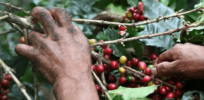
City-dwellers are gradually losing their ability to digest plant foods
Urban humans have developed trouble digesting plants while rural populations still have lots of the gut bacteria that break down ...
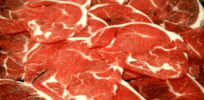
Here are the states trying to ban cell-based meat, and why
Months in jail and thousands of dollars in fines and legal fees—those are the consequences Alabamians and Arizonans could soon ...

Microsoft AI image generator ‘randomly creates violent and sexual imagery,’ whistleblower alleges
Microsoft's AI text-to-image generator, Copilot Designer, appears to be heavily filtering outputs after being warned it would do so ...

Deepfakes: AI-generated photos can create fake “proof” of almost anything — from cheating on your spouse to joining a paramilitary group. What should you do?
AI image generation tech can now create life-wrecking deepfakes with ease: AI tech makes it trivial to generate harmful fake ...

Have gene therapy and gene editing techology progressed enough to deliver life-saving results?
Gene therapy has had a long and bumpy history. Although researchers have made some notable and recent progress, past failures—including some ...

‘A finite pool of worry’: Why humans are unable to focus on climate change and the pandemic at the same time
It's safe to say that the first two years of the pandemic left a lot of people exhausted and emotionally ...
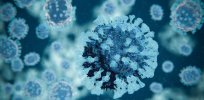
A common flu strain all but vanished last winter. Could COVID have pushed it to extinction?
Many subtypes of the influenza virus all but vanished. But most notably, one entire lineage—one of only four flu groups ...

Extracting urine from wastewater and using it as fertilizer could be sustainability boon
Removing urine from wastewater and using it as fertilizer has the potential to decrease nutrient loading in water bodies and ...

Wheat, nuts and shellfish trigger allergic reactions for many people. Why don’t other foods?
One of the adaptive immune system’s primary jobs is recognizing foreign substances in our bodies and unceremoniously rejecting them by ...
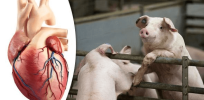
Recipient of gene-edited pig heart transplant survived for just two months. What can we learn from what went wrong?
A human patient with heart disease received a heart from a pig that had been genetically engineered to avoid rejection ...
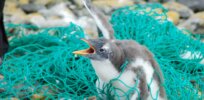
How are animals and plants adapting to our increasingly warming and polluted world?
Peppered moths living in industrial areas of Britain were getting darker, better for blending in against the soot-blackened buildings and ...
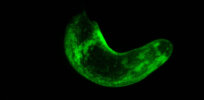
Can humans eventually regenerate limbs? Glow-in-the-dark worms might help us find out
Most animals exhibit some form of regeneration: regrowing hair, for instance, or knitting a fractured bone back together by growing ...

Vaccine mandate war: Is it unethical for health workers to forgo COVID shots?
On [July 13], seven health organizations—including the Society for Healthcare Epidemiology of America, the Association for Professionals in Epidemiology and ...

Why are humans one of the few species in which fathers play an ongoing role in child-rearing?
Male mountain gorillas don’t seem to know or care which young are theirs. But nearly all males tolerate the company ...

Recreational fear: Why some of us like scary movies and haunted houses
[We] tend to seek out scary movies, horror novels, or haunted houses—and not just during the Halloween season. This tendency ...
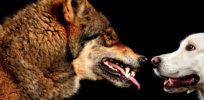
Who let the dogs out: When and how were dogs first domesticated?
We still don’t know exactly when or where dog domestication first happened; it already had a pretty complex history by ...
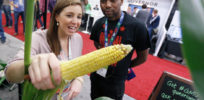
Trust in scientists high globally, Pew survey finds, but public still skeptical of GM crops
The good news is that there’s widespread trust in scientists and a strong desire to act on their findings on ...

Anti-vax conspiracy promoter Robert F. Kennedy, Jr. sues Facebook claiming fact-checking is censorship
Robert F. Kennedy Jr. filed suit [August 18] in federal court in California alleging that Facebook's fact-checking program for false ...

Stem cell tourism: Shady treatments are being offered–even in the United States
[W]e're just starting clinical trials to determine if we can use [stem] cells effectively. But that hasn't stopped people from ...
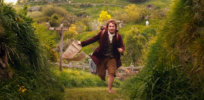
How the Hobbit films illustrate the way human brains evolved
For Northwestern University neuroscientist and engineer Malcolm MacIver, [a scene from the Hobbit: An Unexpected Journey where Gandalf and Bilbo ...

FDA shuts down sales of homeopathic shots containing toxic lead, mercury, strychnine
[The FDA cracked down] on four homeopathic companies selling injectable products said to contain highly toxic substances, including lead, mercury, ...

Why space travel demands a well-stocked cosmic pharmacy
In space, no one can hear you sneeze. But if an astronaut does catch the flu, it can be a ...

An essential but ‘disturbing’ question: What if coronavirus is here for good?
Most of the optimistic ideas about what to do about SARS-CoV-2 involve engineering the virus's extinction. We could ramp up ...

‘Sloppy’ CDC lab practices blamed for tainted coronavirus tests in early stages of pandemic
As the new coronavirus took root across America, the US Centers for Disease Control and Prevention sent states tainted test ...
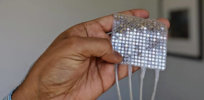
Turning thoughts to text with brain implants and artificial intelligence
For people with limited use of their limbs, speech recognition can be critical for their ability to operate a computer ...
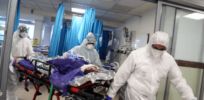
Worst-case scenario for coronavirus deaths ‘imperfect and has to rely on a number of assumptions’
On Monday [March 16], the COVID-19 Response Team at Imperial College London released a report that describes its efforts to ...

Even small villages were ravaged by Black Death, mass grave in the UK shows
Archaeologists recently excavated a mass burial of at least 48 men, women, and children on the grounds of a medieval ...
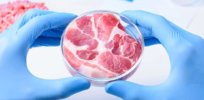
Once focused on vegan burgers, alt-protein industry sets sights on grain- and cell-based chicken, steak
After four years as a biomedical engineer specializing in 3D printing of tissue and organs in Barcelona, Giuseppe Scionti had ...

